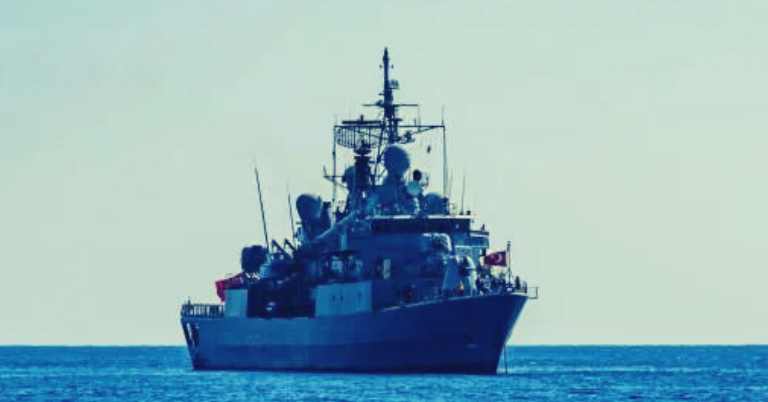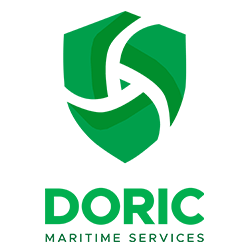In today’s ever-evolving global landscape, securing our maritime domain has become an imperative task. As trade and commerce flourish across the seas, ensuring the safety and security of vessels, cargo, and personnel is of paramount importance. This blog post delves into the crucial role played by armed security guards in safeguarding the maritime domain. Join us on this journey as we explore their duties, responsibilities, and the significant impact they have on our oceans.
Table of Contents
Understanding the Maritime Domain
Before we dive into the duties of armed security guards, it’s essential to grasp the concept of the maritime domain. The maritime domain encompasses all areas of water, including oceans, seas, and navigable rivers. It serves as a vital conduit for global trade, connecting nations and facilitating the movement of goods and resources. Protecting this vast and dynamic expanse is not only a matter of economic interest but also a matter of national security.
The Role of Armed Security Guards
Armed security guards play a pivotal role in maintaining the safety and security of the maritime domain. Their duties extend beyond traditional security roles, requiring a unique set of skills and capabilities. Here are the key responsibilities they undertake:
1. Vessel Protection
One of the primary duties of armed security guards is to protect vessels from a range of threats, including piracy, theft, and sabotage. They are tasked with patrolling the ship, ensuring unauthorized individuals do not gain access, and responding swiftly to any security breaches.
2. Crew and Passenger Safety
The safety of crew members and passengers is paramount. Armed security guards are trained to handle emergency situations, such as medical crises or hostile encounters, ensuring the well-being of all on board.
3. Anti-Piracy Measures
Piracy remains a significant threat in certain maritime regions. Armed security guards are well-equipped to deter pirates and respond effectively if an attack occurs. Their presence alone can discourage potential threats.
4. Security Assessments
Before embarking on a voyage, armed security guards conduct comprehensive security assessments to identify vulnerabilities and develop mitigation strategies. This proactive approach enhances overall security.
5. Crisis Management
In the event of a security incident, armed security guards are trained to manage crises efficiently. They collaborate with the vessel’s crew, local authorities, and international organizations to ensure a coordinated response.
6. Use of Force
While the use of force is a last resort, armed security guards are prepared to employ it if necessary to protect the vessel and its occupants. They undergo rigorous training to ensure the responsible use of firearms.
The Legal Framework
The legal framework governing the role of armed security guards in the maritime domain is a critical aspect of ensuring safety and security at sea. Both international and national regulations play a pivotal role in establishing guidelines for the operation of security teams on vessels.
Internationally, the United Nations Convention on the Law of the Sea (UNCLOS) provides a foundational framework, emphasizing the principles of innocent passage and setting rules for addressing piracy and maritime crimes. Additionally, the International Maritime Organization (IMO) offers comprehensive guidelines through the International Ship and Port Facility Security (ISPS) Code. These guidelines outline essential security measures for both vessels and port facilities.
Nationally, each country may have its own specific laws and regulations pertaining to armed security guards on vessels flying their flag. These regulations cover areas such as firearms and weapons possession, rules of engagement, reporting requirements, and flag state approval. Compliance with these legal provisions is not only a legal obligation but also a crucial component of ensuring the safety of maritime operations and the protection of the maritime environment.
The Impact of Armed Security Guards
The presence of armed security guards on vessels has had a profound impact on the maritime industry. Their contributions include:
- Reduced Piracy Incidents: Vessels with armed security teams are less likely to be targeted by pirates, leading to a decrease in piracy incidents worldwide.
- Enhanced Confidence: Shipping companies and crew members have greater confidence in their safety when armed security guards are on board.
- Economic Stability: The reduction in piracy incidents helps maintain stable shipping routes, preventing disruptions to global trade.
- Deterrence Effect: The knowledge that armed security is on board serves as a deterrent to potential threats, contributing to a safer maritime environment.
Conclusion
Armed security guards are the unsung heroes of the maritime domain, tirelessly working to protect our oceans and the global economy. Their multifaceted duties, encompassing vessel protection, crisis management, and piracy deterrence, make them indispensable assets on the high seas. As we sail forward into an uncertain future, their commitment to safeguarding our maritime domain remains unwavering.
Why Choose Doric NG for Maritime Armed Security Guards in Nigeria?
When it comes to safeguarding your maritime assets and operations in Nigeria, Doric NG stands as the top choice for a multitude of compelling reasons. First and foremost, our team at Doric NG comprises highly trained and seasoned maritime security professionals who possess extensive expertise in the field. Their training covers everything from maritime security protocols to crisis management and the responsible use of firearms, ensuring that they are well-prepared to protect your assets effectively.
Doric NG has earned a sterling reputation in the maritime security sector through a consistent track record of success. Our portfolio includes a diverse range of security operations for vessels of various sizes and types, leading to the trust of numerous clients in the maritime industry. This track record speaks to our ability to deliver reliable and top-tier maritime security solutions.
In addition to our expertise and experience, Doric NG places a strong emphasis on compliance with both international and national legal frameworks. We understand the complexities of operating within the maritime security landscape, and our commitment to adhering to all relevant laws and regulations ensures not only your safety but also legal protection for your operations in Nigeria’s waters. When you choose Doric NG, you’re selecting a partner dedicated to excellence in maritime security, tailored solutions, and unwavering commitment to safeguarding your maritime assets.



